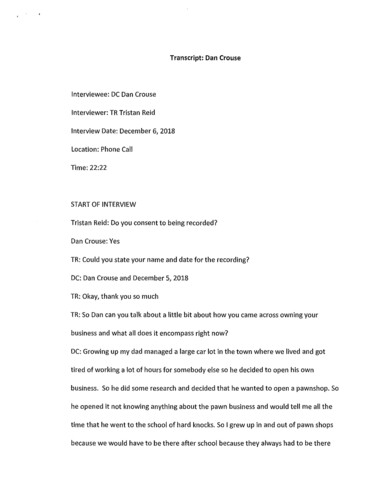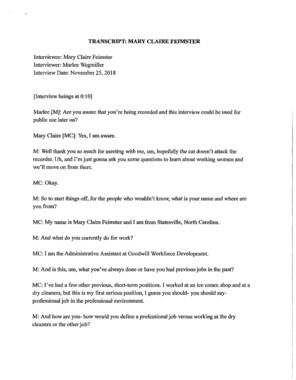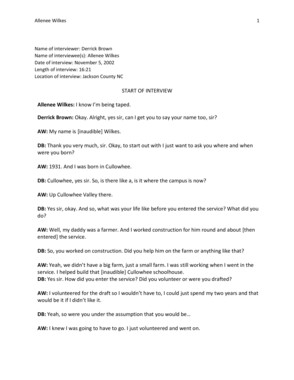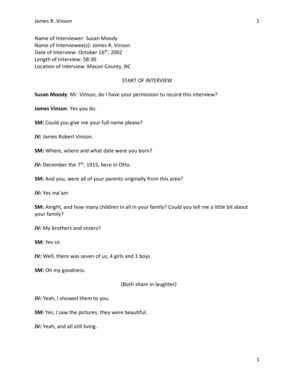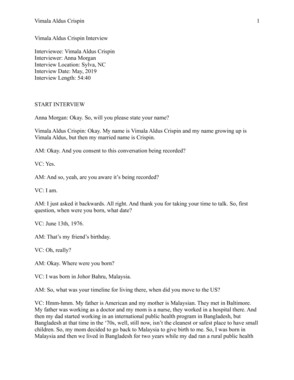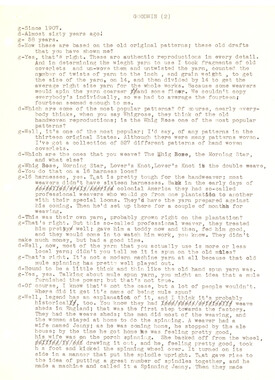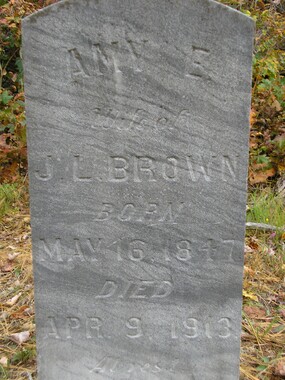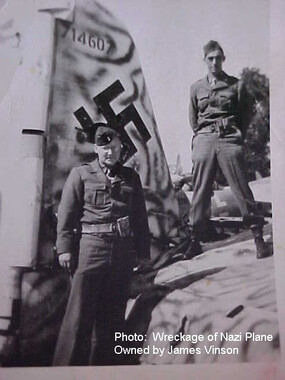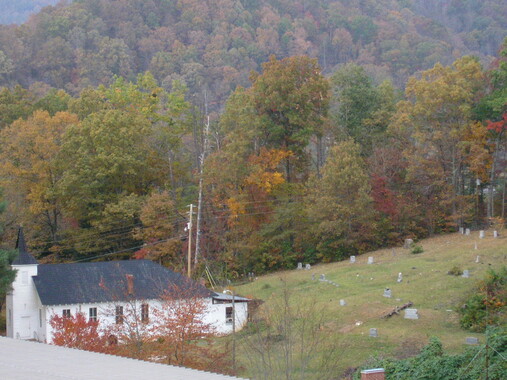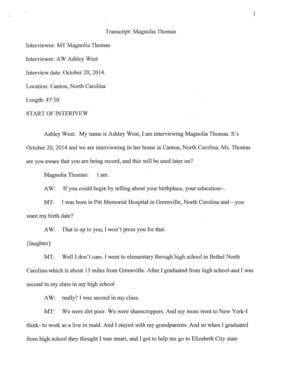Western Carolina University (20)
View all
- Canton Champion Fibre Company (2308)
- Cherokee Traditions (293)
- Civil War in Southern Appalachia (165)
- Craft Revival (1942)
- Great Smoky Mountains - A Park for America (2767)
- Highlights from Western Carolina University (430)
- Horace Kephart (941)
- Journeys Through Jackson (154)
- LGBTQIA+ Archive of Jackson County (19)
- Oral Histories of Western North Carolina (314)
- Picturing Appalachia (6679)
- Stories of Mountain Folk (413)
- Travel Western North Carolina (160)
- Western Carolina University Fine Art Museum Vitreograph Collection (129)
- Western Carolina University Herbarium (92)
- Western Carolina University: Making Memories (708)
- Western Carolina University Publications (2283)
- Western Carolina University Restricted Electronic Theses and Dissertations (146)
- Western North Carolina Regional Maps (71)
- World War II in Southern Appalachia (131)
University of North Carolina Asheville (6)
View all
- 1700s (1)
- 1860s (1)
- 1890s (1)
- 1900s (2)
- 1920s (2)
- 1930s (5)
- 1940s (12)
- 1950s (19)
- 1960s (35)
- 1970s (31)
- 1980s (16)
- 1990s (10)
- 2000s (20)
- 2010s (24)
- 2020s (4)
- 1600s (0)
- 1800s (0)
- 1810s (0)
- 1820s (0)
- 1830s (0)
- 1840s (0)
- 1850s (0)
- 1870s (0)
- 1880s (0)
- 1910s (0)
- Appalachian Region, Southern (15)
- Asheville (N.C.) (11)
- Avery County (N.C.) (1)
- Buncombe County (N.C.) (55)
- Cherokee County (N.C.) (17)
- Clay County (N.C.) (2)
- Graham County (N.C.) (15)
- Great Smoky Mountains National Park (N.C. and Tenn.) (1)
- Haywood County (N.C.) (40)
- Henderson County (N.C.) (5)
- Jackson County (N.C.) (131)
- Knox County (Tenn.) (1)
- Macon County (N.C.) (17)
- Madison County (N.C.) (4)
- McDowell County (N.C.) (1)
- Mitchell County (N.C.) (5)
- Polk County (N.C.) (3)
- Qualla Boundary (6)
- Rutherford County (N.C.) (1)
- Swain County (N.C.) (30)
- Watauga County (N.C.) (2)
- Waynesville (N.C.) (1)
- Yancey County (N.C.) (3)
- Blount County (Tenn.) (0)
- Knoxville (Tenn.) (0)
- Lake Santeetlah (N.C.) (0)
- Transylvania County (N.C.) (0)
- Interviews (314)
- Manuscripts (documents) (3)
- Personal Narratives (7)
- Photographs (4)
- Sound Recordings (308)
- Transcripts (216)
- Aerial Photographs (0)
- Aerial Views (0)
- Albums (books) (0)
- Articles (0)
- Artifacts (object Genre) (0)
- Biography (general Genre) (0)
- Cards (information Artifacts) (0)
- Clippings (information Artifacts) (0)
- Crafts (art Genres) (0)
- Depictions (visual Works) (0)
- Design Drawings (0)
- Drawings (visual Works) (0)
- Envelopes (0)
- Facsimiles (reproductions) (0)
- Fiction (general Genre) (0)
- Financial Records (0)
- Fliers (printed Matter) (0)
- Glass Plate Negatives (0)
- Guidebooks (0)
- Internegatives (0)
- Land Surveys (0)
- Letters (correspondence) (0)
- Maps (documents) (0)
- Memorandums (0)
- Minutes (administrative Records) (0)
- Negatives (photographs) (0)
- Newsletters (0)
- Newspapers (0)
- Occupation Currency (0)
- Paintings (visual Works) (0)
- Pen And Ink Drawings (0)
- Periodicals (0)
- Plans (maps) (0)
- Poetry (0)
- Portraits (0)
- Postcards (0)
- Programs (documents) (0)
- Publications (documents) (0)
- Questionnaires (0)
- Scrapbooks (0)
- Sheet Music (0)
- Slides (photographs) (0)
- Specimens (0)
- Speeches (documents) (0)
- Text Messages (0)
- Tintypes (photographs) (0)
- Video Recordings (physical Artifacts) (0)
- Vitreographs (0)
- WCU Mountain Heritage Center Oral Histories (25)
- WCU Oral History Collection - Mountain People, Mountain Lives (71)
- Western North Carolina Tomorrow Black Oral History Project (69)
- A.L. Ensley Collection (0)
- Appalachian Industrial School Records (0)
- Appalachian National Park Association Records (0)
- Axley-Meroney Collection (0)
- Bayard Wootten Photograph Collection (0)
- Bethel Rural Community Organization Collection (0)
- Blumer Collection (0)
- C.W. Slagle Collection (0)
- Canton Area Historical Museum (0)
- Carlos C. Campbell Collection (0)
- Cataloochee History Project (0)
- Cherokee Studies Collection (0)
- Daisy Dame Photograph Album (0)
- Daniel Boone VI Collection (0)
- Doris Ulmann Photograph Collection (0)
- Elizabeth H. Lasley Collection (0)
- Elizabeth Woolworth Szold Fleharty Collection (0)
- Frank Fry Collection (0)
- George Masa Collection (0)
- Gideon Laney Collection (0)
- Hazel Scarborough Collection (0)
- Hiram C. Wilburn Papers (0)
- Historic Photographs Collection (0)
- Horace Kephart Collection (0)
- Humbard Collection (0)
- Hunter and Weaver Families Collection (0)
- I. D. Blumenthal Collection (0)
- Isadora Williams Collection (0)
- Jesse Bryson Stalcup Collection (0)
- Jim Thompson Collection (0)
- John B. Battle Collection (0)
- John C. Campbell Folk School Records (0)
- John Parris Collection (0)
- Judaculla Rock project (0)
- Kelly Bennett Collection (0)
- Love Family Papers (0)
- Major Wiley Parris Civil War Letters (0)
- Map Collection (0)
- McFee-Misemer Civil War Letters (0)
- Mountain Heritage Center Collection (0)
- Norburn - Robertson - Thomson Families Collection (0)
- Pauline Hood Collection (0)
- Pre-Guild Collection (0)
- Qualla Arts and Crafts Mutual Collection (0)
- R.A. Romanes Collection (0)
- Rosser H. Taylor Collection (0)
- Samuel Robert Owens Collection (0)
- Sara Madison Collection (0)
- Sherrill Studio Photo Collection (0)
- Smoky Mountains Hiking Club Collection (0)
- Stories of Mountain Folk - Radio Programs (0)
- The Reporter, Western Carolina University (0)
- Venoy and Elizabeth Reed Collection (0)
- WCU Gender and Sexuality Oral History Project (0)
- WCU Students Newspapers Collection (0)
- William Williams Stringfield Collection (0)
- Zebulon Weaver Collection (0)
- African Americans (97)
- Artisans (5)
- Cherokee pottery (1)
- Cherokee women (1)
- College student newspapers and periodicals (4)
- Education (3)
- Floods (13)
- Folk music (3)
- Great Smoky Mountains National Park (N.C. and Tenn.) (1)
- Hunting (1)
- Mines and mineral resources (2)
- Rural electrification -- North Carolina, Western (2)
- School integration -- Southern States (2)
- Segregation -- North Carolina, Western (5)
- Slavery (5)
- Sports (2)
- Storytelling (3)
- World War, 1939-1945 (3)
- Appalachian Trail (0)
- Cherokee art (0)
- Cherokee artists -- North Carolina (0)
- Cherokee language (0)
- Church buildings (0)
- Civilian Conservation Corps (U.S.) (0)
- Dams (0)
- Dance (0)
- Forced removal, 1813-1903 (0)
- Forest conservation (0)
- Forests and forestry (0)
- Gender nonconformity (0)
- Landscape photography (0)
- Logging (0)
- Maps (0)
- North Carolina -- Maps (0)
- Paper industry (0)
- Postcards (0)
- Pottery (0)
- Railroad trains (0)
- Waterfalls -- Great Smoky Mountains (N.C. and Tenn.) (0)
- Weaving -- Appalachian Region, Southern (0)
- Wood-carving -- Appalachian Region, Southern (0)
- Sound (308)
- StillImage (4)
- Text (219)
- MovingImage (0)
Interview with Dan Crouse
Item
Item’s are ‘child’ level descriptions to ‘parent’ objects, (e.g. one page of a whole book).
-
-
Transcript: Dan Crouse Interviewee: DC Dan Crouse Interviewer: TR Tristan Reid Interview Date: December 6, 2018 Location: Phone Call Time: 22:22 START OF INTERVIEW Tristan Reid: Do you consent to being recorded? Dan Crouse: Yes TR: Could you state your name and date for the recording? DC: Dan Crouse and December 5, 2018 TR: Okay, thank you so much TR: So Dan can you talk about a little bit about how you came across owning your business and what all does it encompass right now? DC: Growing up my dad managed a large car lot in the town where we lived and got tired of working a lot of hours for somebody else so he decided to open his own business. So he did some research and decided that he wanted to open a pawnshop. So he opened it not knowing anything about the pawn business and would tell me all the time that he went to the school of hard knocks. So I grew up in and out of pawn shops because we would have to be there after school because they always had to be there Dan Crouse 2 because they were the boss and the employees. So after going through high school I did not want to be in the pawn business because I'd grown up in it and it was kind of the last thing I wanted to do. So I went to a four-year university and started school and very quickly became overwhelmed with school and jobs and everything else trying to support myself. And my dad had moved to another state. He had moved to North Carolina and opened a pawnshop and wanted to open another one and called me and said you know I got a great location and I just need somebody up here that I can trust, and I don't know anybody. I was looking at going into law-enforcement and I found out what I was going to be making after graduating with a four-year degree, if I was lucky enough to get on with the department that I wanted to get on with, and I was like very discouraged and he told me that he thought I could be making twice that much money in a year if I went into business with him in the pawn business. So I packed up everything I had and moved to North Carolina and opened a pawn shop and then we opened another pawn shop and then my dad passed away and I took over the one that he had and ended up opening one other. So I have four now. And I have some great employees who work at the pawn shop, so because of that I've been able to get into some other businesses. We also have vacation rentals and I just really like working for myself. TR: Definitely, definitely and I'm sorry to hear about your dad. DC: Oh, yeah Dan Crouse 3 TR: So he had a big influence on you and he kind of brought you into the business, although at first you didn't want to go into this business. So how do challenges from the beginning compare to challenges you face today and what are some of the challenges that you have faced being a small business owner? DC: Some of the big challenges are personally everything falls on you. Your day doesn't end when you clock out at 5:30 or whatever time you close your business. You're always thinking about it, you're always concerned about it. The store needs money, it has to come from you. There's nobody else that's going to take care of that for you. So a lot of stress, a lot of sleepless nights. The other side of it is good and bad and that is when you're a small business owner and you're the owner and employee, you raise your family at your business. My daughter was raised in the business, my wife worked for the business ... so my daughter grew up in a front carrier with my wife waiting on customers in our business. My son was pushed around the business by my mother-in-law in a stroller while we were at work. TR:Yeah DC: When our kids were born, they were both born at home in the bathtub. And my wife was actually in labor but held on until we could close the business so we could go home, so she could have our daughter. So when it's your business everything kind of revolves around it. Your family and everything included. The other side of that is now that we're twenty years into the business or twenty-five years into the business ... we have built it to the point where we can afford to have employees and we're able to spend a whole lot more time away from the business and with our family. And our Dan Crouse employees are able to run it for us. TR: Definitely, and so thank you for answering both sides ofthe question, as far as the positive aspects and negative aspects. And you spoke a little bit about your employees and so how did you want to go about building your workplace environment or what type of work environment have you tried to create at your pawnshops and at any other business that you own? 4 DC: Weill think you really want somebody who is going to run this business like you would run it but my dad had a saying that nobody runs the counter like the guy whose money is in the cash drawer. So trying to find employees who will do things the way you would do them if you were there I think is the biggest challenge. I found that if you hire people who like the business that you're in- employees who enjoy what they're doing are the best employees. So we've all gone to businesses and walked in and been waited on by employees who obviously didn't like what they were doing, and it's a huge difference when you have an environment of employees who are enjoying what they're doing, they're happy with what they're doing, they feel valued. They feel like that the owner is responding to their questions, to what they need, to what they want, to their opinions. Honestly, you have to treat your employees well and then at the same time you have to hold them accountable for doing the job the way that you want it done. TR: Yeah, definitely. Well firstly, have you owned a business in another region of North Carolina? And if so, what was this experience like in comparison to owning a business in Western North Carolina? Dan Crouse DC: I've never owned a business in another part of North Carolina. I do know that I spent a lot of times in our businesses at my parent's shop in Florida, which is where I grew up and it definitely varies from region to region. I do love the small town. I love being in the mountains of North Carolina. I love knowing all of my customers. I think there is probably more money to be made in a bigger city but I think you would lose some of that small-town feel. TR: Definitely. So if people are discussing your business what would you want them to say? What would you want the legacy of this business to be for you and your dad? DC: I would want to be considered honest. I would want to be considered fair by my customers. I would want my employees to enjoy working for me and have favorable things to say about me whether I was present or not. But yeah, just to be remembered and talked about as being reputable and honest. Just that I do my job well. 5 TR: Definitely. So did you receive ... I know you talked a little bit about it when you were trying to go a different way as far as your career choice. And so what formal education did you receive before opening your business and if not any formal education because I've interviewed a lot of people who learned through their experiences and so if it's the other side, what did you learn from those experiences? DC: I made it about half way through my first year of college before leaving to open my business and while I think that college is necessary for some people, I don't feel like it's necessary for everyone. I feel like having a mentor or having in my case a father who had experience ... I feel like and even my daughter is an entrepreneur, she's seventeen years old and owns two business already. I feel like if you're going to do that type of Dan Crouse thing and you have a mentor, I don't necessarily think that a college degree and the expense that goes along with it is the way to go. 6 TR: Yeah, I definitely understand and just like you said ... you know for some careers you have to have that degree. For me with history if I don't have at least a master's, then I can't find a job really anywhere in the history field. Of course I could use the degree and apply it to something else but yeah, you don't always need the formal education to be successful in life and to do your own thing. I think that's really important to point out and something I really want to emphasize in my paper. So how do you envision, or I guess I would ask this a different way, and this question is kind of hard for people because a lot of times we don't think about these things but maybe you have. How do people usually envision your job if they're just talking about it with you? And do you think your perspective is similar or different than the way people perceive owning a small business in western North Carolina? DC: I think that people who spend time around the business only see the front ofthe house stuff. So I think they envision it as being a lot simpler than it actually is. I've had several people in over twenty-five years of business come in and spend some time in my shop and then say man this is just so easy and I'm going to go open my own shop ... and they have and they've failed because they don't take into account the stuff that you don't see when you're sitting out front at the counter or in the showroom. They don't take into consideration the finances and the bookkeeping and the balancing act that goes with having to own your own business. Dan Crouse TR: Yeah, that's been a lot of the answers that I've gotten from people, is that the regular customers doesn't realize how much work goes into making something like running a full-scale pawnshop look simple on the outside but they don't know all of the nuance and everything that comes with owning a small business. 7 DC: Yeah, I think they also don't understand the expense that goes along with it. You know if someone comes in and they don't like my profit margins on an item that they're want to sell or something, they don't realize all the expense that goes into running a shop, from the rent to the electric bill, to the insurance, to the payroll on the person whose waiting on you, to the workmen's comp being there for the employees that are waiting on you, to the taxes and the payroll and the licensing that goes alone with it. The expenses that go along with running a business ... people just have no idea how expensive it is. TR: Definitely. And so talking about the business climate in America right now. How has the business climate in our region changed over the time just from your perspective and how have you adjusted to these larger changes? So maybe the Great Recession or anything like that or changes that have come through government policies. DC: I mean I've seen several changes over twenty-five years. I know when we started there were a lot of small businesses that were concerned when Walmart decided to come in because it's very hard to compete with a store like Walmart that sells things ... That buys in such bulk and sells them so cheaply. So when they came in I know a lot of the smaller craft stores and mom and pop stores did go out because they couldn't compete with Walmart. So that was the climate and I see that same climate now with Dan Crouse 8 the evolution of the internet and Amazon and all of those types of businesses coming in. I feel like now they're putting the pressure on Walmart and we've gone from everybody not wanting to go to five different stores when they can just go to Walmart and get it all cheaper. Now it's changed to people don't even have to go to Walmart, they can just order on their phone and have it in two days at the same price or cheaper. So everything has changed a couple times in the past twenty-five years but now everything is definitely being influenced by the internet and the evolution of Amazon and the online stores. TR: Definitely, so my next question is how have you adjusted to these changes as far as online sales and stuff like that? And just from my experience, of course this is my first talking to you, but I talked to Jesse and another one of your employees Casey pretty often, and he posts stuff for the pawnshop and I know for gun sales and things like that ... you guys post some of that stuff online. So how have you kind of adapted to this changing scene in the business world in America? DC: Weill think I was very fortunate to be in a business that can't really be done over the internet. We do a lot of cash loans and pawning which really can't be done on the internet. We've tried to roll with the punches of the internet and use it for advertising and Facebook marketplace and things like that -Ebay to sell some of the merchandise and to give ourselves a broader spectrum of potential customers than we would depending on people who just walk in our doors. So we've used that as well. We also benefit because we do sell guns and firearms and those require the person to be in the store to do the purchasing. So when someone does buy from another store online, that Dan Crouse 9 gun is shipped to us and then the customer has to come into our store to do the background checks and we offer a very inexpensive rate on doing that background check for guns that have come in over internet in the hopes that the person coming in our store to pick up there gun might buy some ammo or might buy a holster, or might see another gun that they like in our store and we might turn that person, who otherwise would not come into our store, into a customer. So just using stuff like that. TR: Definitely. So if you had the opportunity to start over would you get into the same type of business? If not what other businesses have you considered? And a lot of people love the business that they're in so many wouldn't want to change, so could you talk a little bit about that. DC: I was so raw and so uneducated on how to do the everyday operations of the business, not to mention the licensing and the payroll and the incorporation and all of those things that I wouldn't have been able to go into business without the help of a mentor or my father in this case. So the fact that he knew the pawn business so well basically gave me what I considered to be a ten-year head start on where I would be without input and his guidance. So I don't think that I could have gone into another business on my own and accomplished what I've accomplished because without his guidance it just wouldn't have been possible. I do think that after having that guidance and after being on my own in the business now, the same rules that make you a good business owner- a good pawnshop owner- also can translate into other businesses as well. So as I mentioned before, we've gotten into vacation rentals and things now, and the same rules that apply to the pawnshop, a lot of the same rules and things that make Dan Crouse you good at that business translate into other businesses as well. So without any education or anything, I felt comfortable jumping into vacation rentals and other businesses because of having the success and the education that I got through the pawnshop. I felt comfortable doing it in other things now. 10 TR: Definitely, so as you get older how would you like your business to grow? Or transition? There's several ways, some people like your father keep it in the family and hand it down or some choose to be bought out and to go into other careers or to just relax or some people give it over to their partner ... different things like that and so how would you like to grow and how would you like to transition? DC: I like being able to step away from the business and still have the income from it. It's nice to able to take my focus off the pawnshop and do other things and spend time with my family and travel but still have the security of knowing that it's there and it's good to have good employees that like what they're doing. So I have thought about selling out a couple times but I know that if someone bought the business, it's not very likely that they would keep all of my employees. Some I've had for a long time and they're older and maybe not as productive as a younger employee would be but they've been loyal to me so try to reciprocate that and be loyal to them and continue to employ them ... And also it's nice to be able to still have the business and still have the income without having to spend forty hours a week in it and be able to do other projects. So right now where I'm at I like being able to have the business but not let the business have me ... I guess that's the best way to put it. I can spend time at home. I can spend time on my vacation rental properties. I can spend time with my family and know that the shops are Dan Crouse 11 taken care of by my employees. TR: That's great and one of my last questions is what advice would you offer young small business owners in the Jackson county area or even on a wider scale. Locally or State or Nationally, what advice would you give people who are going into opening their own small businesses? DC: Find somebody who's done it before. Find somebody who's done it and succeeded at it before. And make them your best friend, pick their brain and ask them questions and find out, glean as much knowledge from them as you can, because you are going to face a lot of the things that they faced and if you can be ready for those things prior, it can be beneficial to you. So find a mentor. Find somebody who's done it before and done it successfully and talk to them about it. TR: Definitely, so that was one of my last questions. Is there anything you would like to add or anything that I left out that you think is important to owning a small business during our current times? DC: I think that ... I don't think it's for everybody. There are days of being a business owner that everything kind of seems to be falling in on me at one time and I just want to go work for somebody else and let them deal with all of it and just cash my check at the end of the week. But then when I realize how much time that would entail and then the benefits that I get from being the owner, those times usually don't last very long. It's great being your own boss, it's great being in business for yourself and it's something that I hope to be able to pass on to my kids. . ' Dan Crouse 12 And when I was just a teenager, I got something from my dad that was like a clear piece of plastic that had like watch pieces in it and it had a saying in it that says "time is money and blessed is he that has both". And I didn't even really know what that meant when I got it from him but I actually have it sitting on my desk and I don't think any truer words have ever been spoken. Your time is important and money is important but you really need both to able to fully enjoy your life. So finding that balance is really what it's all about. TR: Definitely. Well thank you so much for taking the time to do this and I'm going to turn off the recording really quickly but please hold on one second. DC: Okay END OF INTERVIEW
Object
Object’s are ‘parent’ level descriptions to ‘children’ items, (e.g. a book with pages).
-
Dan Crouse, a small business owner, discusses how he grew up in the pawn shop business, and how that business was passed on to him. He discusses the importance of mentorship, treating employees well, and balancing work with the rest of your life. This interview was conducted to supplement the traveling Smithsonian Institution exhibit “The Way We Worked,” which was hosted by WCU’s Mountain Heritage Center during fall 2018 semester.
-
